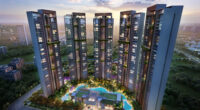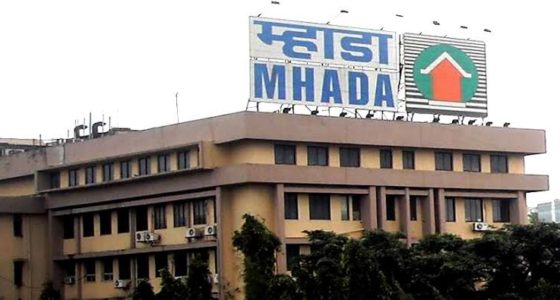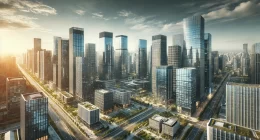In today’s world, the role of real estate in shaping sustainable urban environments has never been more critical. As cities grow and the demand for both commercial and residential real estate surges, the importance of Environmental, Social, and Governance (ESG) principles cannot be overstated. In particular, the “E”—Environmental responsibility—forms the foundation for how we, as real estate developers, approach the future of building design, construction, and operations.
During Q2 2024, about 13 million sq. ft of office space in the top six cities of India has been leased in green-certified buildings. This represents a 24% year-on-year increase and accounts for an impressive 82% share of overall leasing during the quarter. At Century Real Estate Holdings, we are cognizant that this rapid growth indicates the rising awareness among corporate occupiers regarding the role that built structures play in addressing climate change by reducing carbon footprints. In response to this need, we have embraced a vision where environmental stewardship drives every aspect of our projects.
Energy Efficiency: An Essential for Sustainability
Incorporating energy-efficient designs has become the cornerstone of our developments. From the use of high-performance materials to designing buildings that maximize natural light and ventilation, we are committed to reducing operational costs for our tenants and lowering the carbon footprint of our projects. Our selection of energy-efficient lighting design has enabled us to achieve a lighting power density of 0.5 watts per sq. ft and a 51% energy saving due to lighting at our commercial developments. Certifications like LEED and IGBC are not just aspirational goals but standards that guide our design and construction processes.
Water Conservation and Waste Reduction
Water is one of the most precious resources, particularly in urban environments like Bengaluru, where we face periodic water scarcity. Our projects address this by ensuring efficient water use through low-flow fixtures and dual-flush systems. The implementation of 100% recycled water for HVAC, flushing, and gardening demonstrates our company’s commitment to responsible water use across our commercial and residential portfolios, significantly reducing water usage. Similarly, we’ve taken steps to manage construction waste better and adopt circular economy principles that prioritize reuse and recycling over disposal.
Green Spaces for Wellness
Our projects are not just about buildings; they’re about creating spaces where people can thrive. That means integrating green spaces that not only enhance the aesthetic value of a project but also fulfill the human need for nature-connectedness. Studies show that enabling employees access to green spaces offers them fatigue relief and attention restoration, thereby improving cognitive performance, concentration, and productivity. We believe that this trend of “greening spaces” will become the norm in the future, and we are working towards it, with 1.9 million sq. ft of our portfolio being green certified.
Sustainable Materials and Renewable Energy
We have made significant strides in adopting sustainable materials that are not only eco-friendly but also offer long-term durability. Local sourcing of materials further reduces the environmental impact associated with transportation. Additionally, renewable energy sources like solar and wind power are being integrated into both commercial and residential developments, moving us closer to our long-term goal of carbon neutrality.
As we move forward, our commitment to environmental sustainability remains unwavering. By continuing to innovate and push the boundaries of sustainable real estate development, we believe we can build a future where urban growth and environmental protection go hand in hand.
About the Author:
Mr. Mahesh Prabhu is the Chief Executive Officer of Century Real Estate Holdings, a leading real estate developer in India, known for its forward-thinking approach to both commercial and residential developments.
Also Read: CII IGBC and CREDAI Sign MoU to Promote Green Building Practices in India









